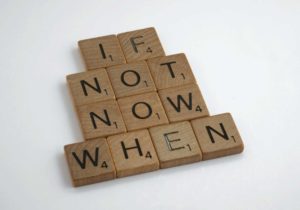22.09.11-23.09.11: After meeting with Sophie I was whisked away to her flat which overlooks Ela beach and she made me some din-dins which we ate with her flatmate Alex on the balcony as the sun went down. Port Moresby has this dramatic look to it, with many of the buildings perched on the hillsides that drop off to the sea – sadly, most (if not all) of the buildings are made of that cheap nasty concrete stuff that so excites the loins of architects and accountants, so the next day I visited the Port Moresby museum to see some authentic PNG art and culture – and I’ve got to say I wasn’t disappointed.
The museum is free – okay, so it could do with a spring clean — but the wooden artefacts, carvings, totems, masks, canoes, shields etc. are a sheer joy. The Papuans have been here for at least 50,000 years, and with some tribes not contacted by The West until the 1930s (and some might still be uncontacted), there’s a LOT of stories and a lot of culture to attempt to squeeze into a little museum. My only complaint is that it wasn’t bigger.
Before first contact was made in the 1930s, the Central Highlands (an east-west spine running down the middle of the country – with peaks reaching as high as 5,000 metres above sea level) were assumed to be unpopulated. Mr. Leahy and his team were actually looking for gold, but instead found over one MILLION inhabitants who had never seen white people before, never mind gramophones, aeroplanes and top hats. It’s little wonder that a number of inhabitants from PNG and The Solomon Islands fell so easily into Cargo Cultism – the belief held for a short period after the Second World War that if they built makeshift airstrips and shuffled bits of paper around a pretend ‘office’, they would receive gifts from the gods in the form of aeroplanes dropping off cargo.
After the museum, I spent a good couple of hours at the Parliament Haus and visited the spot where in 1975 Papua New Guinea declared a reluctant independence from Australia. While I will cheerfully concede that being run by Australia must have been one soggy picnic, it doesn’t take a genius to see that the structure of hand-overs – in fact, nearly all hand-overs pushed by the UN after the war – and the general health and education of the country at that point were not really taken into consideration. Like the cargo-cultists shuffling their papers in their wooden radar towers, the UN believed if you could get a gang of locals and put them in suits they would magically have the ability and drive to run a country.
The UN was right… to an extent. The newly independent government of PNG could run the country, to the extent that running a country doesn’t seem that difficult. But running a successful country, running a country that doesn’t thrive on corruption… ah, that’s another matter entirely. And so PNG like many former colonies started its long tortuous slide towards becoming a failed state. The expats left in their thousands. Port Moresby gained a reputation for crime and social disorder that would make Mogadishu blush. A reputation somewhat exaggerated in my opinion – of all the people I met in Port Moresby, not one of them had been the victim of a mugging or a car jacking. But while methinks the Aussie press doth protest too much, you don’t walk anywhere at night, and that fact alone smells very much like the upshot of an inept government.
But there is light at the end of the tunnel. A pilot light. They’ve just discovered the biggest gas field this side of Alpha Centuri beneath the soil of PNG, and with a bit of luck, PNG has a chance to throw off its shackles of being a resource-rich, cash-poor country and become a resource-rich, cash-rich country in the next ten critical years. If they succeed they could easily become THE Pacific tourist destination for adventure travel: with over 700 linguistically unique tribes, the Kokoda Trail and some of the best Scuba diving spots in the world, it’s an easy sell. Or maybe they will fail. Maybe greed and corruption will triumph as they often do in countries in which most children never go to high school and the government see that as a green light to take the piss. Who knows?
What I do know is that the GDP of PNG has doubled pretty much overnight and I would hope that the international community has made enough dumb mistakes in the past to know that if we steal the gas for a song and a sweet backhander, if we let PNG fail, we’ll be storing up a world of pain, not just for the local PNGers, but for the world as a whole – this place is just too marvellous, just to unique to allow the forces of darkness to triumph.
On Thursday night, Sophie had to go to Madang for work and so Alex and I hit the town. A leaving do for a couple of Alex’s mates meant pizza around a swimming pool, more alcohol than was is strictly necessary and a selection of people from so many different countries it was like the UN… so it didn’t come as too much of a shock to learn that most of the people around the table did in fact work for the UN. I met Algerians, Turks, Aussies, Kiwis, Yanks, Poms, Swedes, Dutchies, South Africans, Filipinos, Colombians… you name it.
In the club afterward I found myself drinking with a gang of Papuans and thinking that PNG was actually a really cool place. Okay, so it’s a little expensive, (compared to Europe and the US, not Australia) but then whatever voodoo economics make that the case (Indonesia



